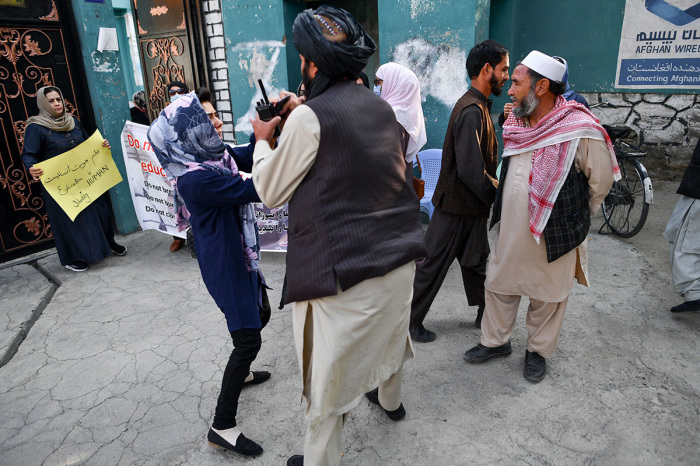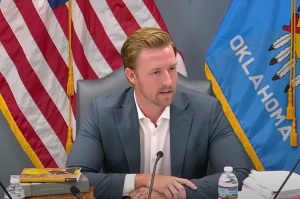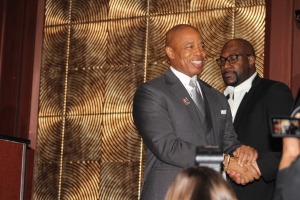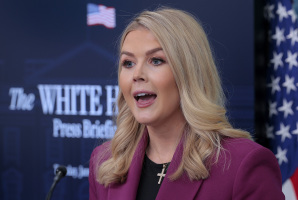Afghan ambassador says Biden doesn't care about fate of women under Taliban control

Afghanistan's ambassador to the United States said she doesn't believe President Joe Biden cared about the "fate" of women as his administration pulled U.S. troops out of the Taliban-controlled country after 20 years.
Ambassador Adela Raz, who became ambassador to the U.S. in July, was interviewed by Axios on HBO regarding the developments in Central Asian country following the U.S. troop withdrawal. A portion of the interview was posted to YouTube by HBO on Monday.
This summer, as the U.S. pulled the last of its armed forces out of Afghanistan, the Taliban quickly took control of the Central Asian country amid the collapse of the U.S.-backed government.
Raz noted that despite the withdrawal of U.S. troops, which was something the Trump administration also planned for, she had wanted there to be "conditions on Taliban that they commit to the achievements that the Afghan society has made."
The Taliban, which refers to itself as the Islamic Emirate of Afghanistan, has a history of unfairly treating women through its interpretation of sharia law when it held control of much of Afghanistan during the late '90s and early 2000s.
When asked if she believed that President Biden was concerned about Afghan women under Taliban rule, Raz replied that she did not think he was.
"I don't think so. He said, 'U.S. cannot be the police of the world, to protect women in any other country,'" responded Raz.
When read a quote from Biden in which he argued that diplomacy, international support and "economic tools" would be used to encourage human rights in Afghanistan, Raz replied, "what type of tools are left right now to pressure Taliban that they respect the human rights?"
Over the past several years, the U.S. has gradually reduced troop numbers in Afghanistan after toppling the Taliban regime in 2001 in the wake of the 9/11 terror attacks.
In February 2020, then-President Donald Trump announced at the Conservative Political Action Conference that he had made a deal with Taliban insurgents and the Afghan government to end the war.
"Today, the United States signed a deal with the Taliban so that we can hopefully begin the immediate process of finally bringing our troops back home," Trump said at the time.
"I want to just thank our military because we've been really a police force there for the last long time. We're not supposed to be a police force. We're supposed to be fighting soldiers."
Earlier this year, President Biden announced a plan to withdraw the remaining U.S. forces by the beginning of September, reportedly against the advice of his military advisors.
In August, the Taliban retook large parts of Afghanistan, including the capital of Kabul, with an unexpected speed that spread chaos as thousands of Afghans tried to flee the country.
Western sympathizers, Americans and others desperately tried to flee the country via the airport in Kabul. The Biden administration sent around 6,000 troops to help evacuate U.S. citizens and Afghans who aided the U.S. during its time in the country.
Biden also ordered "our Armed Forces and our Intelligence Community to ensure that we will maintain the capability and the vigilance to address future terrorist threats from Afghanistan."
"America went to Afghanistan 20 years ago to defeat the forces that attacked this country on September 11th. That mission resulted in the death of Osama bin Laden over a decade ago and the degradation of al Qaeda," said Biden in an Aug. 14 statement.
"I was the fourth President to preside over an American troop presence in Afghanistan—two Republicans, two Democrats. I would not, and will not, pass this war onto a fifth."
By September, there were reports of Taliban insurgents stopping Americans and others from leaving the country, as well as an uptick in the persecution of women and religious minorities.
A recent Quinnipiac poll found that only 34% of surveyed Americans approved of Biden's handling of foreign policy, while 28% agreed with removing all U.S. troops from Afghanistan.
Former President George W. Bush, who was in office when U.S. involvement in Afghanistan began, has argued that the withdrawal of U.S. troops would endanger women and minorities.
In September, women took to the streets in Afghanistan to protest the newly formed interim government that includes over a dozen leaders who are designated terrorists. The United Nations condemned the Taliban's "violent response" to the peaceful protests in which militants were said to have used “live ammunition, batons and whips” to beat women and journalists.





























